- Home
- Roger Taylor
Whistler [A sequel to The Chronicles of Hawklan] Page 50
Whistler [A sequel to The Chronicles of Hawklan] Read online
Page 50
Darke's brow furrowed quizzically.
'A foothold in enemy territory,’ Vredech continued. ‘To it, He will come, and through it pass amongst us. He waits only for the temple that Cassraw will build, then ...’ He left the conclusion unspoken.
Darke and Tirec glanced at one another.
'What makes you say that?’ Tirec asked.
'Who slew Him?’ Vredech asked, ignoring the question. The two men looked at him uncertainly. ‘Who slew Him?’ he said again with some force. ‘Ahmral! You said He was destroyed. Who destroyed Him? Who wielded the sword? Did you see Him slain? Did you see His body?'
'We were ... nearby,’ Darke said after some hesitation. ‘But no man slew Him. He destroyed Himself.'
'Be specific,’ Vredech said coldly, his father's voice echoing through his head as he spoke. It was a command that his two listeners seemed to appreciate.
'This will not be easy,’ Darke said.
Vredech gave a grim laugh. ‘This was never going to be an easy day,’ he said. ‘Just tell me your tale.'
'As you wish,’ Darke replied, though again, his face was pained. ‘He was destroyed because He believed that a flickering remnant of Ishryth's conscious spirit was in fact Ishryth re-born, as He had been. In His rage—or terror—He unleashed such power that His human frame could not contain it and was destroyed utterly, as was the great citadel that He had built.'
But Vredech scarcely heard the tale. ‘What do you mean, a flickering remnant?’ he exclaimed. ‘Ishryth is the Source and Creator of all things—this world, the stars, the whole universe. He is Supreme.'
Darke cut across his outburst. ‘Ishryth came from the beginning of this world, and formed it thus. What was before, no one knows. What he is, or was, no one knows, save that for a time he took human form. But he did not create this world, still less the stars. If there is a Supreme Being, it is not Ishryth. And how could we frame such a creature in our puny minds? Two things Ishryth said as he faded from the final conflict. That he was amongst us all now, and that both he and Ahmral were aberrations of the Great Heat from which they came. Make of that what you will.'
Fabric's torn, ‘fore all was born.
Vredech felt as though he had been suddenly plunged into freezing water. He began to gasp for breath. As he had in the strange night meeting with Horld on the Ervrin Mallos, he felt his mind lurching into darkness, all points of familiarity, of anchorage, gone. What were these two men? Were they indeed creations of his own? Was the Whistler? Were they Ahmral's demons taunting him?
But no sooner did these thoughts appear than they vanished, and the certainty that had formed about him earlier returned. He could not test Darke's story, subject it to any theological rigour, but it was as if it had reached below his thinking mind and shone a light into the doubts and hesitations he had fearfully stored there over the years. He felt the death of many things that he had accepted as articles of faith, but there was no true pain, no sense of loss. He had been given more questions than answers, but they were wise questions and asked in a wider, more wondrous world. He had told Nertha that his faith was changing but now, at the touch of this story, he saw that, as a dried and shrivelled seed becomes a flower, or a caterpillar a butterfly, so his faith had been transformed into something far greater than it had ever been.
He was who he was and he was where he was. And still he must do what he had set out to do, though it cost him his life. But now, there was hope. Now he was no longer pitted against a supernatural evil rooted in the essence of creation, but against the all-too-human evil he had heard exulting as it took possession of Cassraw on the Ervrin Mallos.
He looked at Darke. The man's face was full of pain and guilt. ‘Don't reproach yourself,’ Vredech said. ‘The truth is always to be preferred to ignorance, however painful. And I'm in your debt more than I could begin to explain to you. Tell me now why you're here.'
Darke looked as though he wanted to pursue further the hurt he might have done, but Vredech's manner gave him no opportunity.
'Ahmral returned because of our negligence and our ignorance,’ he said uncomfortably. ‘Now many of us are travelling the world. Some to seek out enemies who fled after the battle and who must be brought to account, others ...’ He indicated Tirec and himself. ‘... just to learn more of the world beyond our own self-satisfied boundaries. And to see how far and how deeply His teachings had spread.'
'And now you've found Him whom you'd thought destroyed?'
'It would seem so. We heard and felt both His death scream and the destruction of His citadel. They were not things to be either misunderstood or forgotten. And those skilled in such matters pronounced Him gone. Yet ...'
'Yet the stink of Him is all around you?'
Darke nodded. ‘An apt phrase,’ he said.
'I heard it from someone else who knows Him,’ Vredech said. Darke's eyes widened, but before he could speak, Vredech asked, ‘What will you do?'
Darke shook his head. ‘I don't know. We could try to destroy Cassraw, I suppose, but I doubt we'd get close enough from what we've seen of him so far. And we know from experience that people who have gained such powers are often armoured in ways we cannot understand. But what did you mean by “someone else who knows him"?'
'You must return to your own people,’ Vredech said. ‘Tell them everything you've heard and seen.’ He leaned forward earnestly. ‘And tell them this. It's important. There are worlds beyond this. I cannot say how and why, but I've been drawn to them of late, and it's shaken my sanity to the core. But they are there as surely as we are here. And somewhere, spread through and between them, distorting, twisting, His spirit exists still. He's done hurt in other places than this. Perhaps it's there He must be sought, I don't know. And tell your people, too, that though He is still strong by our lights, He was grievously weakened by what you did to Him.’ He held Darke's gaze. ‘Will you tell them this?'
Darke's eyes were searching. ‘Yes, I will,’ he said. ‘But ...'
'As for Cassraw,’ Vredech went on, allowing no interruption, ‘you were correct—you'll not even be able to get near him. But he's my friend, my Brother in the church, my responsibility. I will kill him.'
Darke started at this last pronouncement, then Vredech could see him calculating. He felt no resentment.
'You're a priest,’ Darke said eventually. ‘A priest in what, for all its ignorance, is at heart a humane and compassionate church. You couldn't do it.'
Vredech drew the knife from under his robe. He heard a slight hiss from Tirec but before he knew what was happening, Darke had seized his hand and twisted the knife from it. He gasped as he found himself powerless in a grip that scarcely seemed to he holding him. Darke handed the knife to Tirec. ‘Sorry,’ he said to Vredech, though there was little apology in his voice. ‘You startled me. Old reflexes, I'm afraid.'
Tirec was examining the knife. ‘Not bad,’ he said. ‘Bit rough, but robust and practical. Quite a good edge, too.’ Darke inclined his head and Tirec handed the knife back to Vredech who took it with a shaking hand.
'You were going to show me something with it?’ Darke said.
Vredech put the knife back in its sheath clumsily. ‘Yes,’ he said, then, using his hand he offered it to Darke's throat. ‘Like this, I was told,’ he said, demonstrating what Nertha had shown him. ‘It'll make ... a mess ... I believe.'
Darke nodded unhappily and as he looked up Vredech saw tears in his eyes. ‘Yes, it will indeed,’ he said hoarsely. ‘But it's as good a way as any. My heart tells me I should dissuade you, but I can see you'd come to this of your own free will before you met us, and all I can do is to wish you luck.’ He looked away for a moment, then said, ‘It is the right thing to do, I fear, but if I may counsel you briefly, clear your mind of all doubts before you come close. All doubts. And come close before you draw the weapon. Then don't hesitate, not for even the blink of an eye. It's the only way. For both of you.'
'I think I understand,’ Vredech said.
'
I think perhaps you do,’ Darke nodded.
'What will you do now?’ Vredech asked, suddenly anxious not to pursue the matter further.
'Perhaps stay a little longer. Learn a little more,’ Darke replied.
Vredech looked nervous. ‘I will act today,’ he said. ‘While I have the resolve and before Cassraw grows even stronger. I'd be more settled in my mind if I knew you were carrying news of these happenings to someone who can understand them.'
Darke stood up. ‘Then we'll burden you no further,’ he said. ‘We'll leave immediately.'
Vredech, too, stood up and extended his hand. Darke took it and looked at Vredech intently. ‘I'll counsel you again, Brother Vredech,’ he said hesitantly, ‘for I can see death in your eyes. The death of the wrong person—you.’ His grip tightened and the hesitancy vanished. ‘You're at war, Priest. There's no law for you now except survival, and you must look to survive or you'll die for sure and perhaps to no avail. Don't be afraid to look to tomorrow. There'll be one, and you'll have much to do in it. There are no endings or beginnings, only change. Remember.'
Vredech did not know how to reply. ‘So many questions,’ he said.
Darke smiled thinly. ‘Always,’ he replied.
Tirec reached out and took Vredech's hand in both of his. He was more openly concerned than was Darke, but his voice was steady when he spoke. ‘Thank you,’ he said simply. ‘Live well, and light be with you.'
Vredech stood watching them as they walked away. Before they faded into the mist, they turned and waved to him.
Then they were gone.
* * *
Chapter 36
Vredech sat for a long time after the two had left and pondered the strange meeting. What was it Darke had said? ‘Fate, destiny, whatever you choose to call it. Personally I'm quite happy to settle for chance.'
Chance...
Travellers from a far distant land. And bringing such tidings.
But ‘drawn here', Darke had said. Vredech moved his shoulder as if to ease it, unconsciously mimicking Darke's movement. Strange word, ‘drawn', he thought. Like hunters after prey.
Yet they were hunters of a kind those two, for all their quiet words, he decided. They communicated with one another in silence, and Darke had taken the knife from him with breathless, not to say, humiliating ease. And how strange, too, that he should feel more kinship with them than with almost anyone he'd ever known. Perhaps that was what happened to people who had been touched by Him. A deep awareness of a common and awful foe.
And what of his faith? Darke's revelations should perhaps have shattered it, yet, he felt more whole than ever before.
It surprised him that he was accepting such changes so easily.
What forces were moving beneath the surface here?
He looked down at his hand then lifted and lowered it. He had his free will, as far as he could tell. The question was thus not only unanswerable, it was irrelevant.
'You're a warrior, not a priest,’ the Whistler had said. ‘You resort to violence very easily.’ Vredech laid a hand on the knife. ‘You both care about people after your own fashion.’ That remark he understood now. And its deep irony. For true warriors honed their dark skills so that by understanding violence they could better dedicate themselves to its avoidance. He smiled sadly. Turning easily to violence was the prerogative of intemperate priests, and others who were loath to accept the violence inherent in their own natures.
So many questions.
Always.
He walked slowly back to his Meeting House.
There he found Nertha absent and House in a fluster. ‘Those two men have gone,’ House announced. Vredech had to pause for a moment before he recalled Yan-Elter and Iryn. ‘The young man seemed much quieter,’ House said, before he began to feel guilty about this neglect. ‘His brother said they'd come back later to talk.'
'And Nertha?'
'She's looking for you, young man.’ Vredech wilted under the reproach and House rubbed it in. ‘She seemed worried.'
Vredech suddenly felt chilled to his heart. The return to familiar surroundings and House's concerns had temporarily made him forget the deed he had set himself to do that day. Now it was on him again in all its horror.
'I didn't want to wake her,’ he mumbled, moving past House into his office. ‘I have to go out again in a few minutes. Tell her to wait here when she comes back. Tell her not to worry.'
'What about my worries, Brother Vredech?’ House exclaimed. ‘You coming in wringing wet then going out again straight away. Nertha wandering the town with all this trouble going on, and her wearing those Felden clothes of hers.'
Vredech stiffened angrily, but managed to think before he spoke. ‘It's only my cloak that's wet,’ he said, not entirely succeeding in keeping the effort out of his voice. ‘And I doubt anyone's going to see Nertha's clothes under hers. Please don't concern yourself.'
'Easy to say,’ House retorted, ‘but there'll be some scenes today, you mark my words, what with Brother Cassraw speaking in the Heindral and all. I'll not rest until she's safe.'
'Where did you hear that?’ Vredech asked, suddenly urgent.
House waved an airy hand. ‘Everyone's talking about it. He's the new Covenant Member, they say. Poor Brother Mueran. So sudden.'
'Yes, of course,’ Vredech said, as reassuringly as he could. It was an old tradition that a newly-appointed Covenant Member address the Heindral, but for Vredech it was a further measure of the change in Cassraw that he had dismissed such a trifling detail as his election by the Chapter—a matter which was by no means a formality. Far worse than that however, was the prospect of Cassraw having the attention of the Heindral. Almost certainly, every Heinder would be present, and there would be a substantial public crowd as well. And while it was also a tradition that such a speech be bland and uncontroversial, he knew that for Cassraw this was simply an opportunity to subject an important audience to his powerful, binding oratory. Undoubtedly, too, he would perform some ‘miracle’ to convince any waverers of the truth of his claim to be Ishryth's Chosen One. Rational debate was rare in the Heindral under normal circumstances and it certainly wouldn't be able to make itself heard over Cassraw's ranting emotion.
Vredech became very calm. Now at least he did not have to look for Cassraw. And his assessment of what was likely to happen had made his planned assassination even more imperative.
'I'll get your other cloak if you're going out again.’ House's injured tone interrupted his reverie, and with a hasty thanks, Vredech retreated into his office.
He leaned back against the closed door and surveyed the room. Desk, books, furniture, pictures. All so familiar, resonating back into the past. Changed yet unchanged. And, by the window, a large copy of the Santyth on a lectern. He walked over and laid his hand gently on it. It seemed smaller somehow, yet the wisdom that it held and which had guided him for so long, remained. When this was over, he must read it again, with his new vision.
His fingers clawed up into a fist, scraping over the carved leather cover, as the thought came to him.
'You must look to survive,’ Darke had said. ‘Don't be afraid to look to tomorrow.'
He was right, of course. Slaying Cassraw was essential, but he must seek to survive so that afterwards he could explain—or great harm could still come to pass. Yet, try as he might, Vredech could not see beyond the deed. All roads led him to that point and ended there.
'There are no endings or beginnings, only change.'
That, too, was true, but of no value to him right now.
He was so afraid.
Gripping the edges of the book, he closed his eyes and bowed his head. ‘Ishryth, if this cannot be taken from me, give me the strength to do it.'
Silence.
No revelations came. No guiding quotation from the Santyth. No Whistler. Nothing. Just a black, all-enveloping cloud of fear, fringed about with swirls of bitter anger and resentment that he should be thus burdened.
He moved to his desk
and spent a few minutes writing a letter. He laid it first on top of the desk, then changed his mind and placed it conspicuously in the central drawer. It would be found there eventually, and he certainly did not want Nertha to find it too soon. For a moment, thoughts of her almost overwhelmed him. Like so much else, his feelings for her had changed with a totality and suddenness that he could scarcely believe. Why should he not succumb to them? The two of them could flee now, ride away from Canol Madreth before Cassraw's insanity possessed it completely. She was a skilled physician, he was ... not beyond changing. They could find a quiet and useful life together in one of the other states of Gyronlandt. Nertha above all, would understand.
But even as the thoughts swept about him, racking him, tempting him, he remembered Darke and Tirec, figures in the mist, drawn here from a country far away. Their presence told him that neither time nor distance offered protection against the power that he called Ahmral, and that Gyronlandt itself was but a small part of a greater world. And, too, he knew that Ahmral existed even in those mysterious worlds Beyond—the worlds that were both here and not here, the worlds that should perhaps be inaccessible to mere mortals such as he.
There was no place where he could hide and not expect this evil to reach him eventually. And there was no place he could find quiet, knowing that he had turned away from the task that had fallen to him.
He closed the drawer gently and stood up. Then, with a final look around his room, he left.
* * * *
Debate in the Heindral was nominally controlled by the leader of the majority party, though he was heavily constrained by precedent to ensure that each party was allowed time or speakers roughly in proportion to the number of seats they held. It was a system that worked adequately enough, though not infrequently a great deal of noise and acrimony was generated by it. On occasions such as this, however, when a respected member of the community was to address the Heindral on some formal or ceremonial matter, the Heinders could be quite impressively orderly. They would fall silent as the leader rose to his feet, and would listen attentively—or at least quietly—to the honoured speaker. Then they would generously applaud him and there would be fulsome speeches of appreciation from representatives of each party. It was the smug self-satisfaction of these occasions that the Heinders used to convince themselves that their normal behaviour was acceptable, its raucous fatuity invariably being attributable to the Heinders of ‘other parties'.

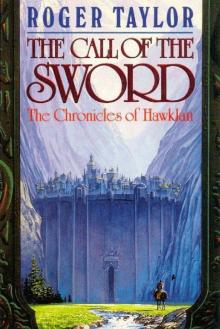 The call of the sword tcoh-1
The call of the sword tcoh-1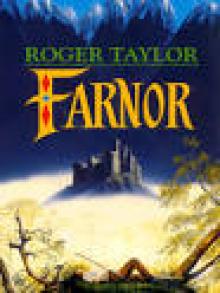 Farnor
Farnor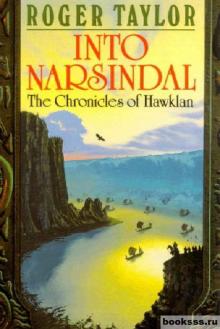 Into Narsindal
Into Narsindal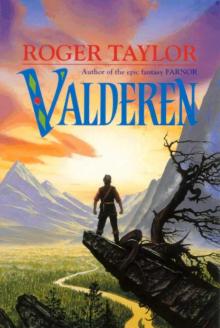 Valderen ft-2
Valderen ft-2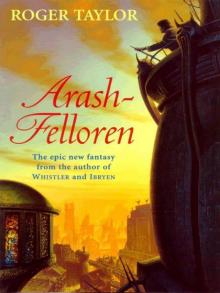 Arash-Felloren
Arash-Felloren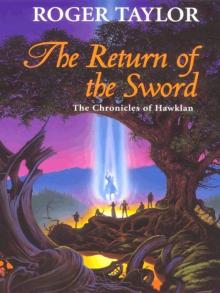 The Return of the Sword tcoh-5
The Return of the Sword tcoh-5![Ibryen [A sequel to the Chronicles of Hawklan] Read online](http://i1.bookreadfree.com/i1/03/26/ibryen_a_sequel_to_the_chronicles_of_hawklan_preview.jpg) Ibryen [A sequel to the Chronicles of Hawklan]
Ibryen [A sequel to the Chronicles of Hawklan]![The Call of the Sword [Book One of The Chronicles of Hawklan] Read online](http://i1.bookreadfree.com/i/03/24/the_call_of_the_sword_book_one_of_the_chronicles_of_hawklan_preview.jpg) The Call of the Sword [Book One of The Chronicles of Hawklan]
The Call of the Sword [Book One of The Chronicles of Hawklan]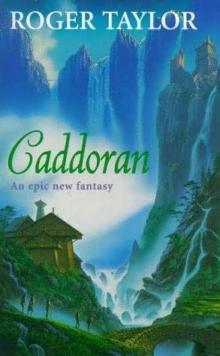 Caddoran
Caddoran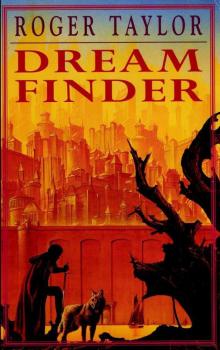 Dream Finder
Dream Finder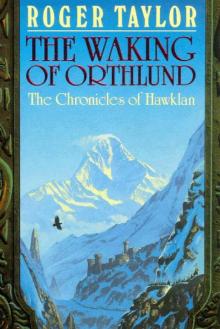 The Waking of Orthlund
The Waking of Orthlund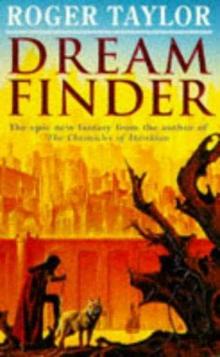 Dream Finder cohs-1
Dream Finder cohs-1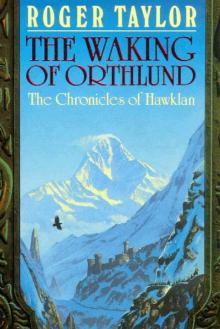 The waking of Orthlund tcoh-3
The waking of Orthlund tcoh-3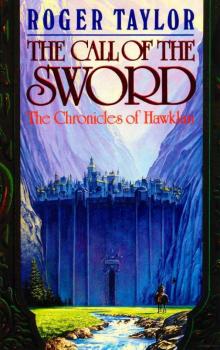 The Call of the Sword
The Call of the Sword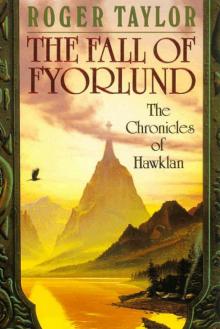 The fall of Fyorlund tcoh-2
The fall of Fyorlund tcoh-2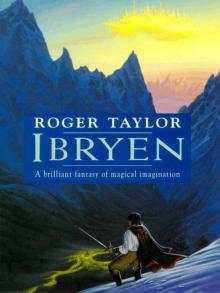 Ibryen
Ibryen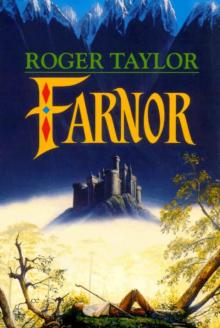 Farnor ft-1
Farnor ft-1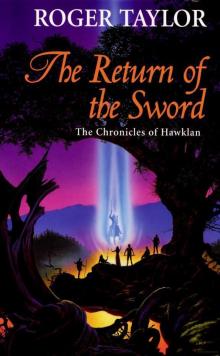 The Return of the Sword
The Return of the Sword![Into Narsindal [Book Four of The Chronicles of Hawklan] Read online](http://i1.bookreadfree.com/i2/04/06/into_narsindal_book_four_of_the_chronicles_of_hawklan_preview.jpg) Into Narsindal [Book Four of The Chronicles of Hawklan]
Into Narsindal [Book Four of The Chronicles of Hawklan]![Valderen [The Second Part of Farnor's Tale] Read online](http://i1.bookreadfree.com/i2/04/05/valderen_the_second_part_of_farnors_tale_preview.jpg) Valderen [The Second Part of Farnor's Tale]
Valderen [The Second Part of Farnor's Tale]![The Fall of Fyorlund [Book Two of The Chronicles of Hawklan] Read online](http://i1.bookreadfree.com/i2/04/08/the_fall_of_fyorlund_book_two_of_the_chronicles_of_hawklan_preview.jpg) The Fall of Fyorlund [Book Two of The Chronicles of Hawklan]
The Fall of Fyorlund [Book Two of The Chronicles of Hawklan]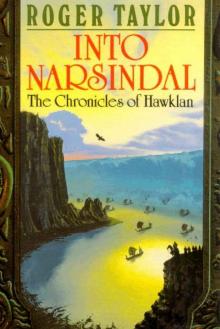 Into Narsindal tcoh-4
Into Narsindal tcoh-4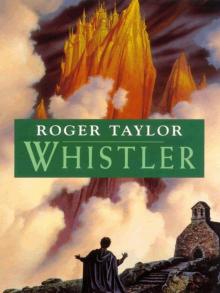 Whistler
Whistler![Whistler [A sequel to The Chronicles of Hawklan] Read online](http://i1.bookreadfree.com/i2/04/12/whistler_a_sequel_to_the_chronicles_of_hawklan_preview.jpg) Whistler [A sequel to The Chronicles of Hawklan]
Whistler [A sequel to The Chronicles of Hawklan]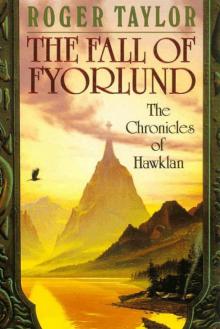 The Fall of Fyorlund
The Fall of Fyorlund![The Waking of Orthlund [Book Three of The Chronicles of Hawklan] Read online](http://i1.bookreadfree.com/i2/04/11/the_waking_of_orthlund_book_three_of_the_chronicles_of_hawklan_preview.jpg) The Waking of Orthlund [Book Three of The Chronicles of Hawklan]
The Waking of Orthlund [Book Three of The Chronicles of Hawklan]